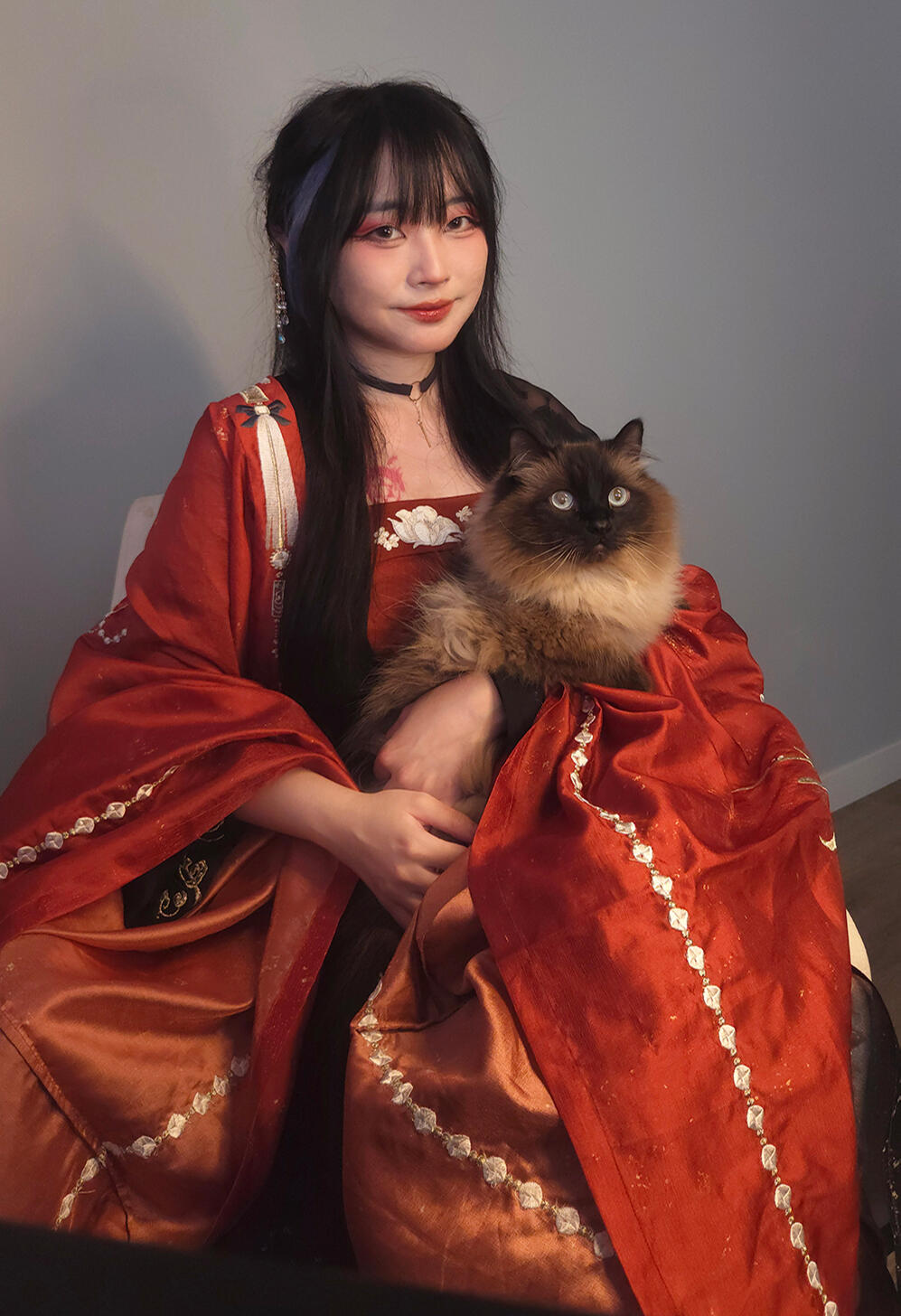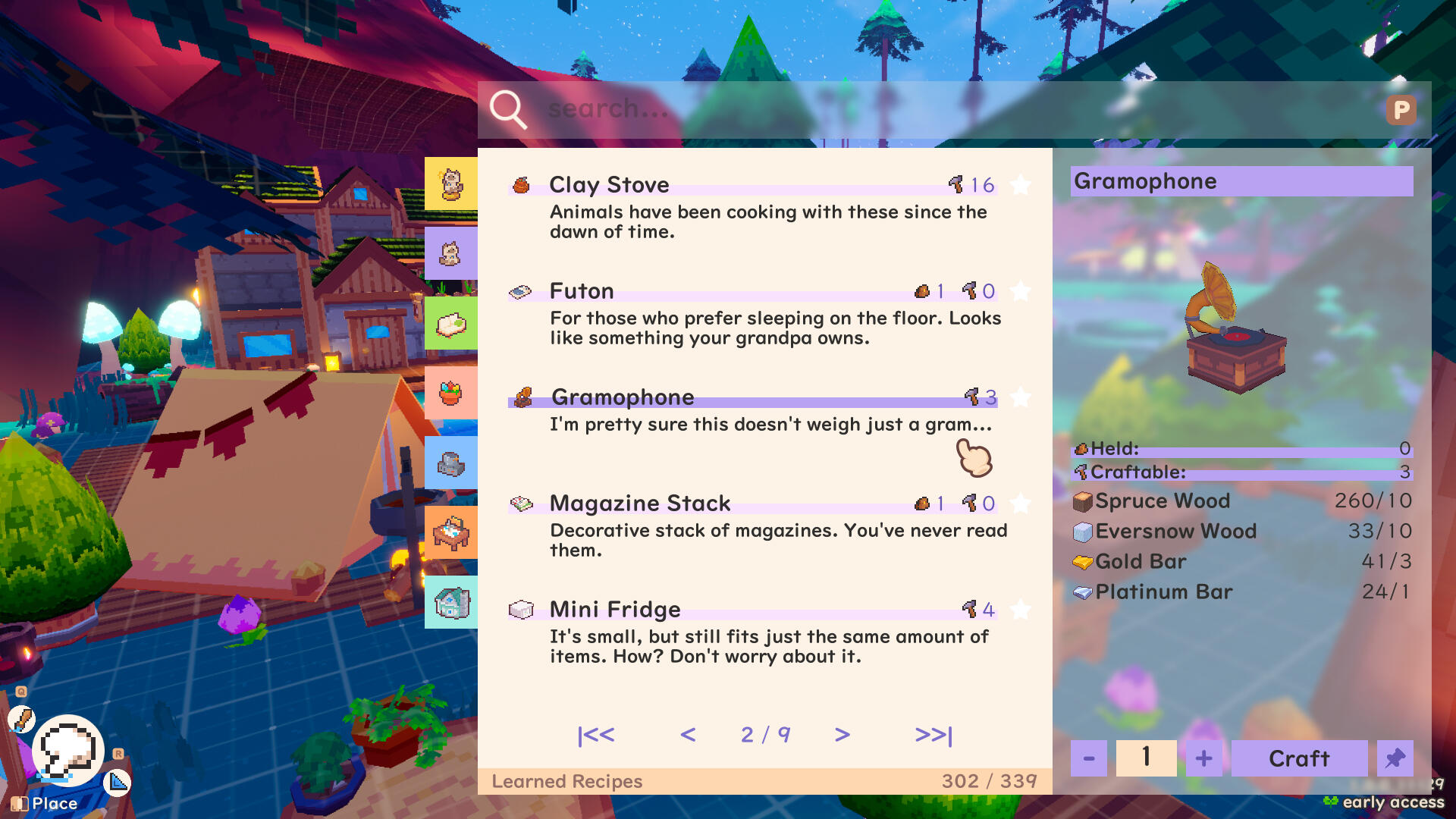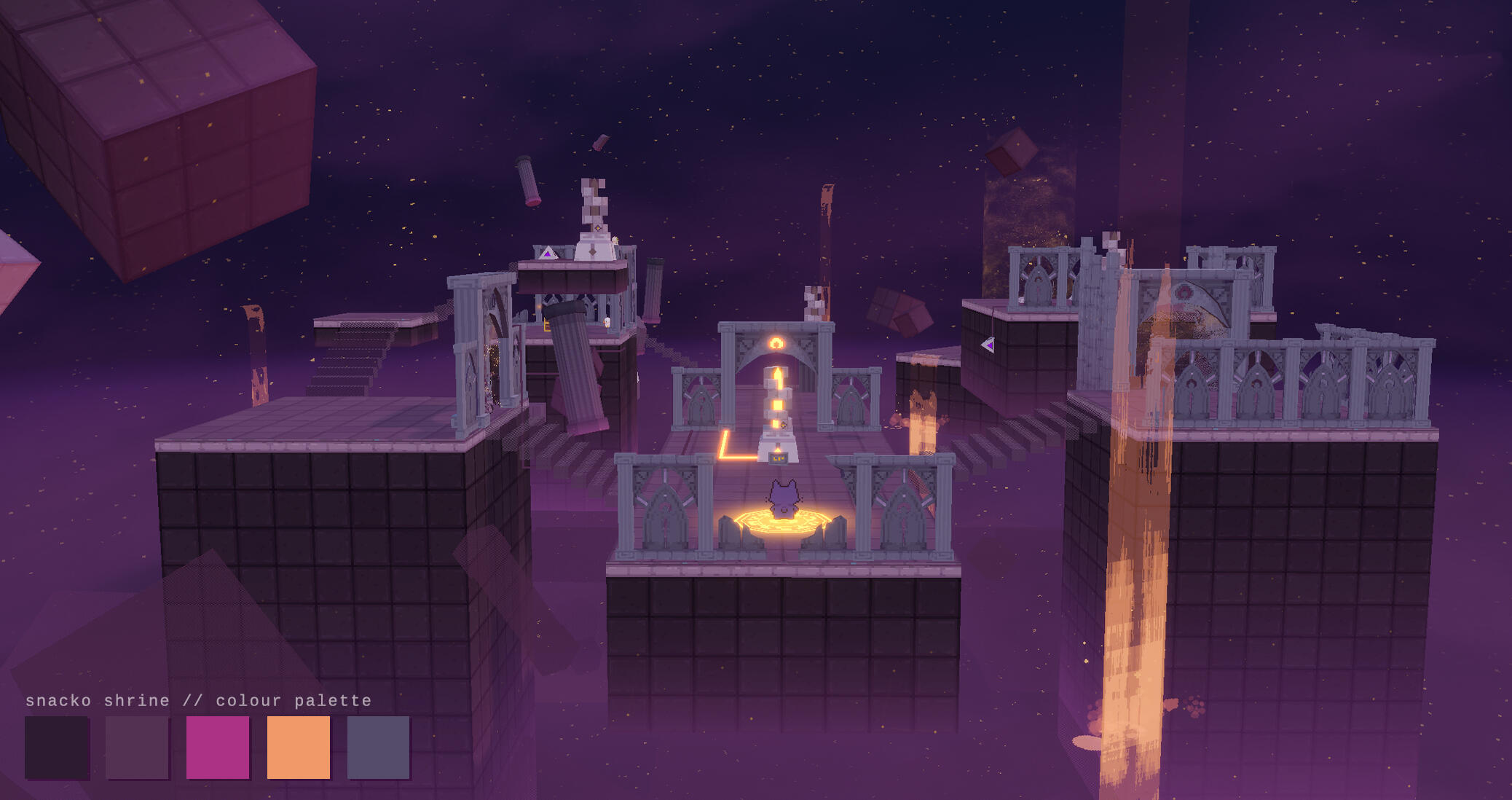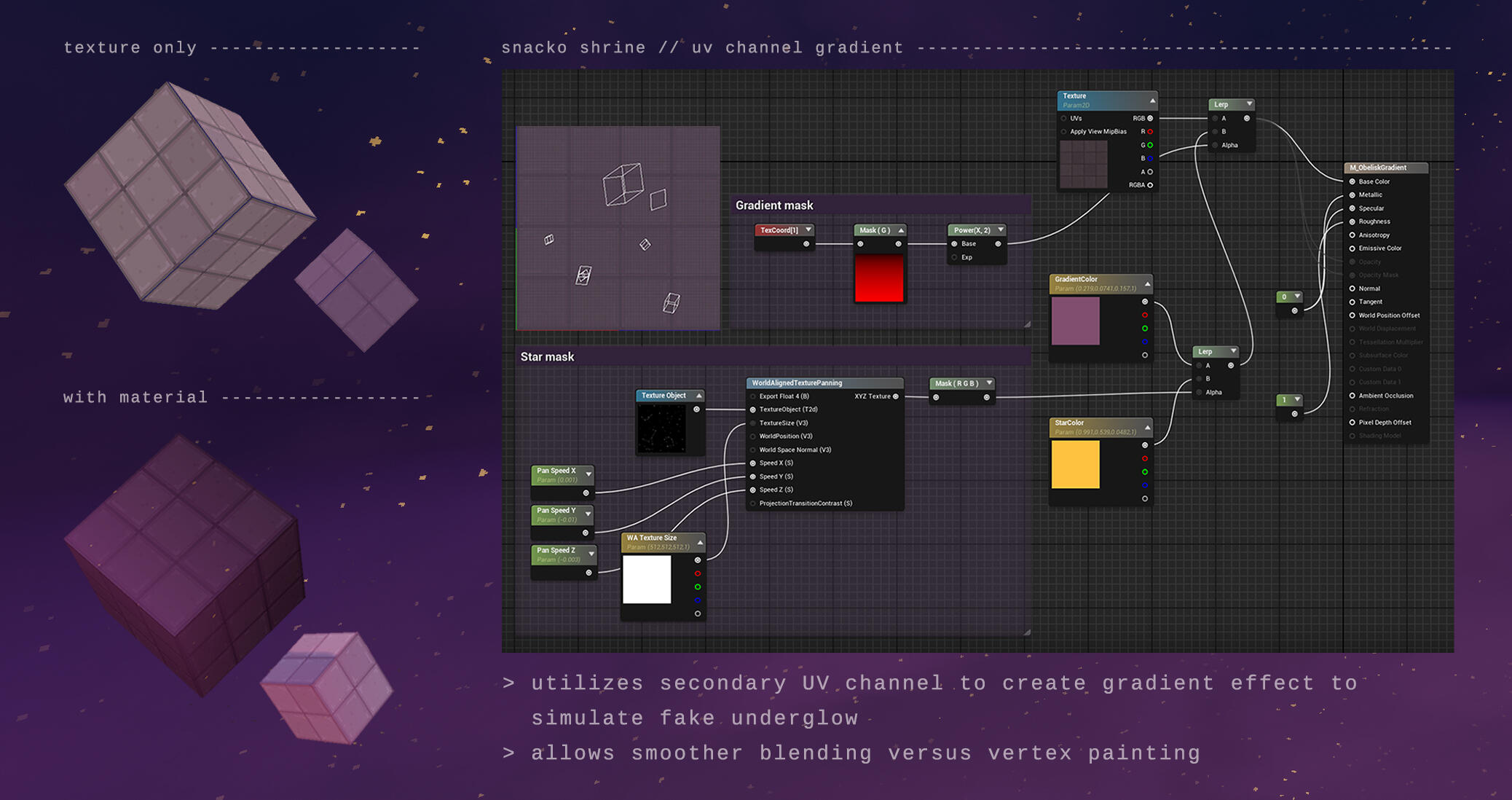Erisa Liu
game artist • writer • pixel eater
about

Starting her path in visual arts in 2014, Erisa specializes in low-poly 3D, pixel art, and UI/UX.Erisa has extensive experience in community management, business administration, and marketing.She has since been delivering fun and visually appealing experiences using Unreal Engine and in-house scripting languages.Erisa completed her BFA in Fine Arts majoring Game Art at Ringling College of Art + Design in 2019, and is now co-managing an indie-game studio with their first release, Snacko.
snacko
Snacko is a 2.5D life sim made in Unreal Engine 4. Launched in Spring 2025, Snacko is currently available on Steam with an overwhelmingly positive review score.As the co-creator, I was in charge of progression design, narrative and writing, UI/UX, 3D art, 2D art, marketing, trailer creation, community, and project management.Featuring over 250 unique quests and 24 lovable characters, Snacko is a labour of love that shows my dedication to creating a world that feels alive.* Specific examples of my work in Snacko can be found in each section of my portfolio.
3d art
low-poly models
Assets made for Snacko. Time and care were put into grouping textures into sets for items, allowing me to fit multiple objects into small 64px sheets.
stylized environments
Traversable environments with assets made using Maya, ZBrush, Substance Painter & Designer, and hand-painted textures using Photoshop. My focus has been on utilizing shaders, post-process, and lighting to efficiently craft story-rich spaces.
2d art
characters
Character portraits done for Snacko. It was a lot of fun designing and creating their personalities as well as their appearances! Each character had 4 to 5 expressions used in the in-game dialogue system.
marketing assets
In addition to taking screenshots for Snacko's Steam page, I was also responsible for the copywriting, store assets, and library assets as well as the key art illustration. I also made all GIFs, images, and graphics used in Snacko's marketing and social media accounts.I was also responsible for designing and setting up Snacko's convention booths, business cards, and merch for shows including Canada's GDX and Seattle's PAX West.
illustrations
ui.ux
Snacko uses a custom UI system dubbed Snacko UI. All UI screens are navigable with mouse and keyboard or game pad.One of my focuses as a UI designer is to make sure that elements and text are readable, even on smaller screens, and that no information is ever communicated solely by colour.Below is a small selection of the UI screens I designed and help implement from wireframe to final.
cooking & recipes
I usually make colour-coded block outs of UI screens before they get thrown onto a canvas inside the engine to test in-game. Once the basic framework is there is when I go in and refine the layout, size, and add in the visual elements.
build mode catalogue

Build mode posed a challenge as it's a main selling point of the game but has a learning curve due to all the options, items, and features you're able to access freely as a player. Making sure the HUD and catalogue screens always had the information needed on-hand was crucial to making build mode feel good to use.
quest system
With over 250 quests, the quest tree was important to help map out dependencies and view pre-requisites for unlocking content.
buffs & extractor
In Snacko, players may explore mines and find buffs, items, or Loom recipes. Inside the loom, loot can be processed to find other, rarer loot. I highly enjoyed making the animations, sounds, buff icons, and responsive layouts that would accommodate variable text length for buff descriptions.
misc
tech
shader/ snacko shrines

Tasked with creating a mod kit for puzzle dungeons two weeks before early access launch, I utilized shaders and secondary UV sets to create the atmospheric shrine interiors.

shader/ custom linear burn in ue4
For simplicity sake, dyeable materials are set up as colour → blend → textureRegions that are “dye-able” are controlled by a black and white mask. The dyes are a colour multiplied onto a texture. The texture is not grayscale - shadows are often tinted with purple or blue to give it more depth.
An alternative that's closer to what you'd expect linear burn to do in Photoshop: add the two and subtract by 0.5 (as opposed to 1), and multiply that together to give it back some depth. It's only slightly different from how the vanilla linear burn node works, but the visual difference is quite large.
shader/ custom stencil buffer selection
One of the challenges with Snacko's flexible build mode was communicating the myriad of features to players - including different selection modes. Utilizing the post-process volume to create selection highlights, and then designating stencil IDs to filter out objects, I was able to visually communicate which objects were locked, selected, or currently active.
game jam/ barely paid
Co-op puzzle platformer made for Global Game Jam 2017 within 48 hours using UE4
game jam/ zappy boy
Draw lines across the world for Zappy to get to the end! Singleplayer experience made for Global Game Jam 2018 within 48 hours using UE4




















































